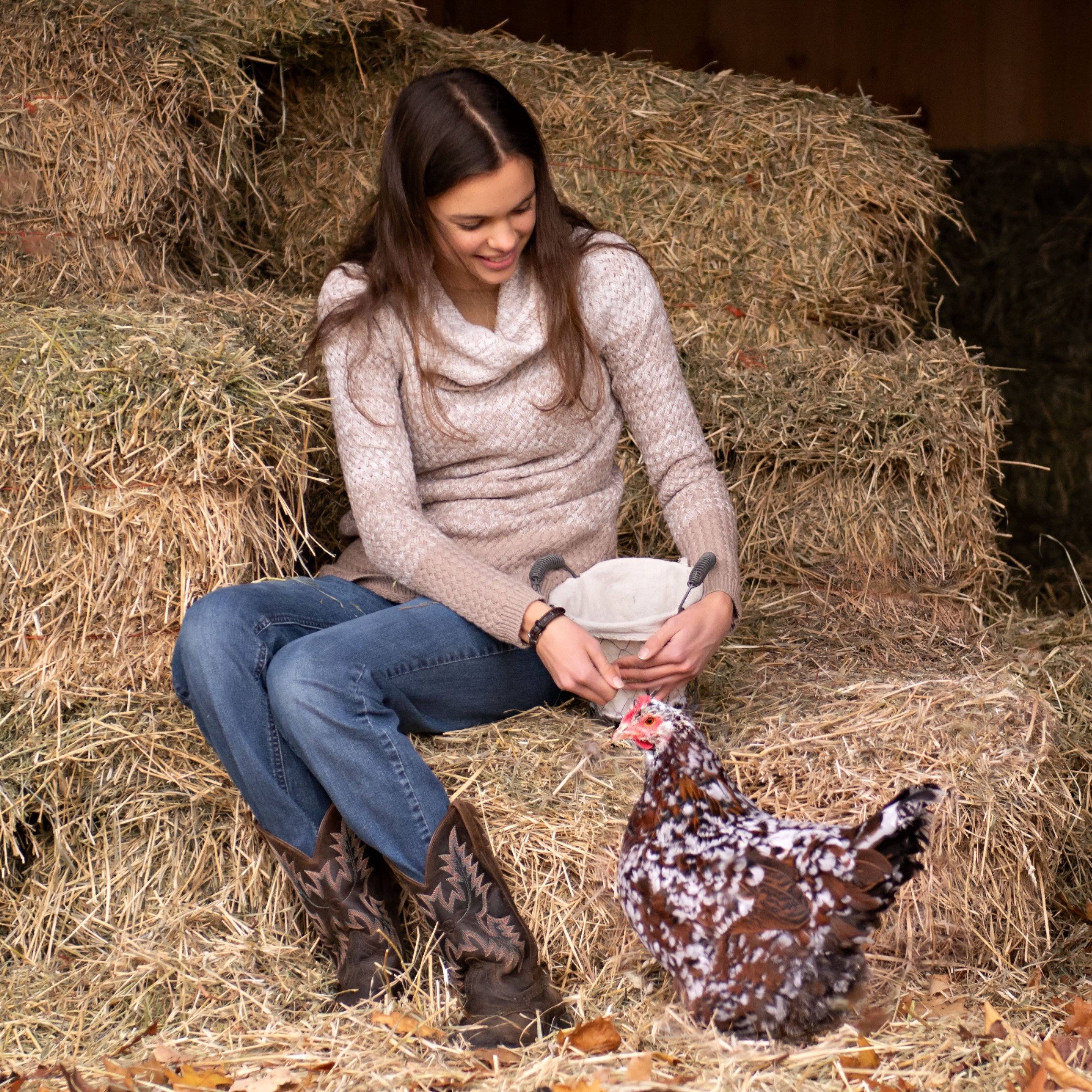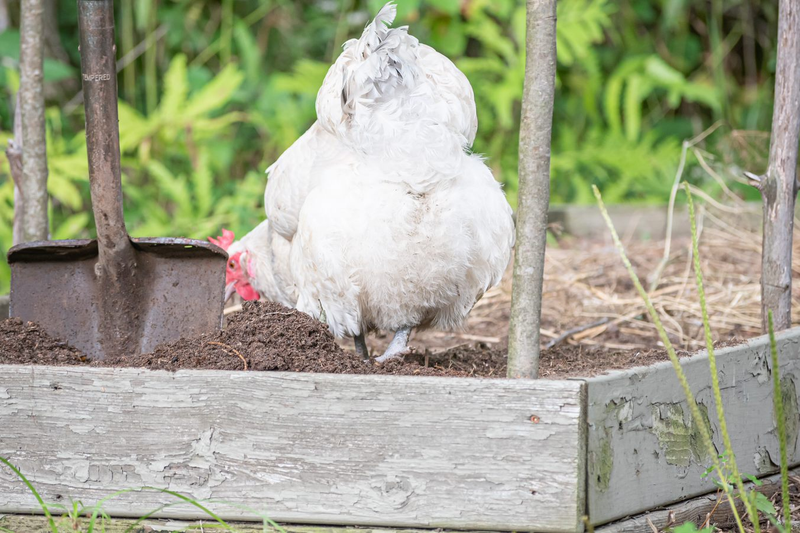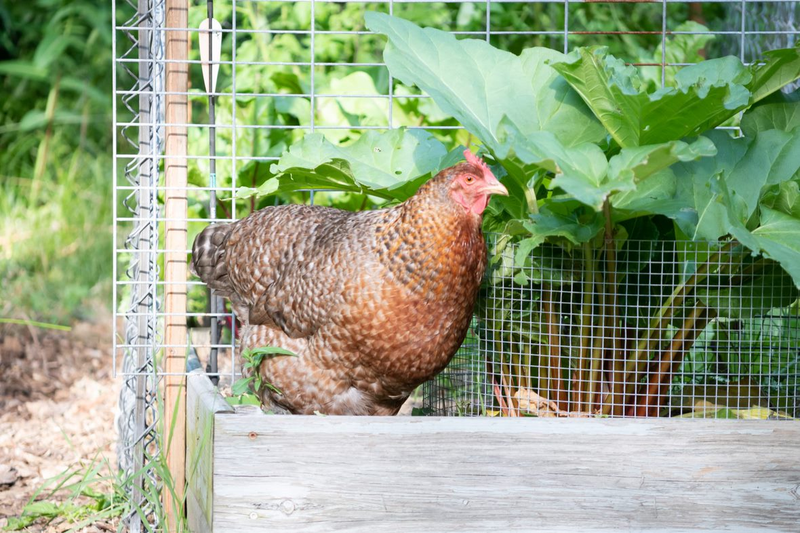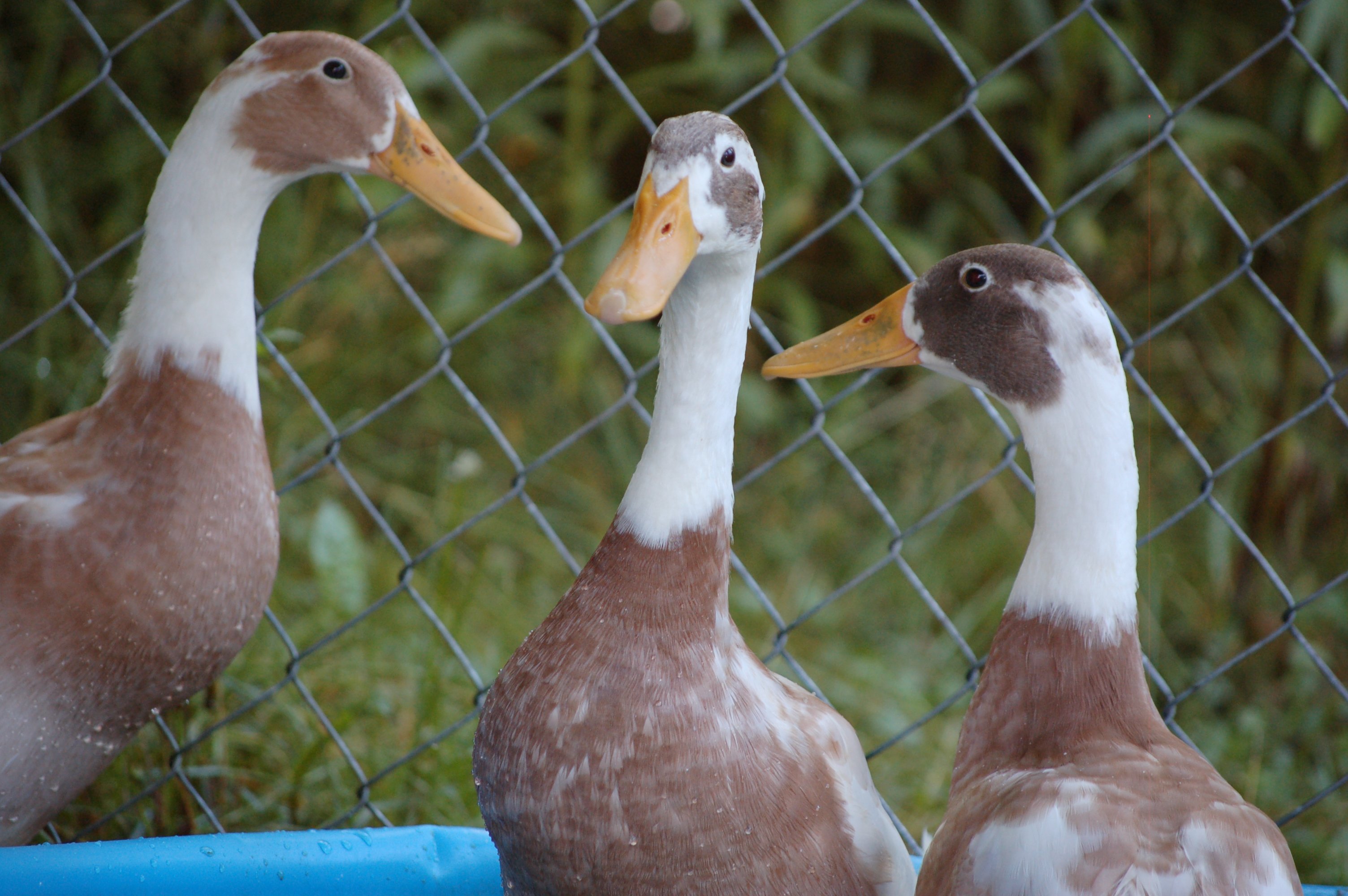Compost tea is made just like any other tea. Steeping finished compost in water provides a nutrient dense brew that is perfect for giving seedlings and struggling plants an extra boost. The best part is that your backyard flock of chickens can help supply the main ingredient for the tea! Chicken poop compost tea is one the most nutrient dense teas you can make for your plants. Let’s take a look at how to make compost tea for your plants using supplies you already have on hand!
What is Compost Tea?
Compost tea is a nutrient dense brew made from water and finished compost. . The compost you use for making compost tea must be finished, meaning the materials used to create the compost have sufficiently decomposed and been broken down into a rich, black dirt-like compost. For more information on how to make rich compost with the help of your backyard flock, make sure you read this Guide to Composting with Chicken Manure.
You can use kitchen scrap compost or manure compost when making compost tea. Kitchen scrap compost is compost made using brown material (leaves, shredded paper or cardboard, and sawdust are great examples) and a variety of food scraps (green material) from your kitchen. Manure compost is made using brown material mixed with fresh livestock manure, whether that be chicken poop, cow manure, or other livestock manure. Make sure to alternate the green layer, then the brown layer, then the green layer, and so on for effective composting (like a smelly lasagna). This can be done in large piles outside in the sun or in a traditional compost bin. Just make sure to add water and turn the piles once in awhile so bad, anaerobic bacteria doesn’t proliferate.
Compost tea is often touted as a ‘natural miracle grow’ for plants. While finished compost can easily be mixed into your garden soil, making compost tea with finished compost allows you to give specific plants a douse of the nutrient dense brew to help them flourish.
There are two common ways to make compost tea. You can do the more supply-intensive method of making aerated compost tea or you can do the simpler method of nonaerated compost tea. To make aerated compost tea, you will need a compost tea brewer that has an aeration system to introduce oxygen into the brew as it steeps. A bubbler is often used when making aerated compost tea.
Nonaerated compost tea is the simplest version of compost tea that is easy to make using supplies you may already have on hand. It just requires a bucket, water, finished compost, and plenty of steeping time.Both methods can get you nutrient dense compost tea to use on your plants and in your garden!
What are the Benefits of Compost Tea?
Compost tea is similar to using straight compost, however, it does come with some of its own special perks and benefits. Compost tea provides all the nutrients that finished compost would supply in a concentrated liquid brew.
Not only does compost tea benefit plants, but it also benefits the soil too, especially when used in conjunction with dry compost. Adding compost to your garden soil helps introduce beneficial microbes to the soil. These microbes include beneficial bacteria, fungi, protozoa, and nematodes that all enhance the quality of the soil. The microbes help break down the soil and make the nutrients in the soil more readily available for plants to use. Compost tea can help supply the beneficial microbes with everything they need to thrive and multiply in the soil.
Here are some benefits of using compost tea in your garden:
- Adds extra nutrients to the soil
- Improves soil composition and structure
- Increases soil biodiversity
- Acts as a natural fertilizer
- Improves plant size and quality
- Increases the soil’s water retention ability
- Eco-friendly and self-sustaining alternative to chemical fertilizers
- Suppresses plant diseases
Compost tea has a higher concentration of nutrients compared to dry compost. The nutrient-dense nature of the brew makes it great for using as a plant or soil drench. Compost tea drenches are beneficial for preventing fungal and blight attacks in your garden. The drench helps beneficial microbes fend off harmful microbes through competitive exclusion.
Plants need vitamins and minerals in order to grow and stay healthy. The additional nutrients that compost tea supplies to plants and the soil helps plants develop a strong immune system for fending off disease and pests.
One of the best parts about using compost tea in your garden is that it can easily be made right in your own backyard! It is economical and can be made completely from scratch, granted you have a readily available source of finished compost.
Compost Tea Recipe
Supplies:
- 5-gallon bucket
- finished compost
- old pillowcase
- baling twine
- non-chlorinated water (rainwater works well too)
Instructions:
- Fill the pillowcase one third full of finished compost. The finished compost can be a mixture of aged manure and litter from your chicken coop, or it can be finished compost you made from your flock’s droppings. Tie off the pillowcase with baling twine near the top of the pillowcase.
- Set the pillowcase in the 5-gallon bucket. A trashcan, barrel, or tub can also be used in place of a bucket. Just make sure the container you use has room for both the pillowcase and plenty of water. Leave the tied end of the pillowcase draped outside of the bucket so you can easily access it.
- Add water to the bucket. You want to add about two times as much water as the contents in pillowcase. So, the ratio should be one third compost to two thirds water.
- Leave the bucket uncovered but set it in a protected, sunny location.
- You will need to dunk the pillowcase up and down in the water about 2-3 times a day to introduce oxygen into the brew. Oxygen helps prevent harmful pathogens and bacteria from growing in the brew.
- Let the brew steep for 1-2 weeks. With regular aeration when you dunk the pillowcase a couple times a day, the compost tea should develop a rich, tawny color.
- Strain the compost tea by removing the pillowcase and allowing the tea to drain from the pillowcase back into the bucket. Discard the contents from the pillowcase into your compost pile. You can save and reuse the pillowcase if desired.
- Store the finished compost tea in a loosely covered container and in a protected area.
When you are making your compost tea, you can add various natural supplements to the mixture to make the finished results even richer and more nutrient-dense. You can add kelp or crushed eggshells to the compost mixture that goes into the pillowcase. Kelp adds extra vitamins and minerals to the steeped tea. Crushed eggshells make the tea extra rich in calcium, which is beneficial for calcium-loving plants like tomatoes and peppers. You can also mix blackstrap molasses into the compost or water when making compost tea. Molasses helps nourish the beneficial microbes that are contained in the compost.
How to Use Compost Tea
Once you have made compost tea, there are several different ways you can use it for your plants or in your garden. It is a good idea to have both diluted compost tea and non-diluted compost tea on hand for using on various plants. Mature plants can often handle non-diluted compost tea, While weak plants or seedlings will need the tea diluted to prevent the richness of the tea from burning their roots.
To dilute compost tea, just mix equal parts tea and water. For example, mix one cup of compost tea with one cup of water for a diluted mixture. When using compost tea on young seedlings, it is best to dilute the mixture even more or wait until they are a bit more mature. Use a tea to water ratio is closer to one part tea to four parts water for young seedlings. It is better to use a more diluted tea solution than douse the seedlings with tea that is too rich for them.
Here are some ways you can use diluted or non-diluted compost tea for your plants:
- Spray- apply the compost tea as a gentle mist to the plant’s leaves so it can be absorbed by the plant foliarly.
- Water- use compost tea like regular water and give your plants a good drink near their base so the tea can be absorbed by the plant’s roots.
- Spot Treatment- apply compost tea to new transplants, plants who are doing poorly, or seedlings without having to treat your whole garden.
- Soil Drench- apply a compost tea soil drench by applying 5-10 gallons of compost tea per 10,000 square feet of soil.
- Plant Drench- apply a plant drench by watering the plant until you see drops of moisture building up on the leaves (point of run-off). This is meant for plants showing nutrient deficiencies!
It is best to apply compost tea to your plants in the morning or evening. The air and soil temperatures will be more temperate at those times and the beneficial microbes will be more active in the soil too.
You don’t have to worry about over-using diluted compost tea. The only stipulation would be to make sure you are not overwatering your plants and making the soil too moist for them to grow. How much moisture a plant can handle in the soil will depend on the type of plant, level of sun, and whether you’re using mulch. Some plants like moist soil while others grow better in dry soil. You can apply compost tea to your garden or plants every two to four weeks during the growing season.
Concerns About Using Compost Tea
There are two main concerns that some gardeners have when using compost tea. The first one being the potential for compost tea to harbor harmful bacteria that could cause disease to the plant or sickness to people who consume the plant. This is more of a concern when manure compost is being used to make compost tea, however, this concern can be prevented by using only finished compost with aeration to make your compost tea. Compost that has been finished will have gotten hot enough during the composting process to kill off harmful pathogens that might harbor in the compost.
The second concern is applying compost tea directly to plant leaves that will be consumed, such as lettuce and other leafy green crops. While compost tea should not contain any harmful pathogens, it can make for an off-tasting crop. Prevent this concern by watering edible crops with compost tea at the base of the plant or avoid using compost tea on crops that will soon be harvested. Foliar feeding is better for tomatoes, peppers, or root vegetables. Washing any edible crops before consuming them is always a good idea too!

Conclusion:
Making compost tea is a great way to boost garden productivity and make for healthier plants! Compost tea is the perfect natural alternative to chemical fertilizers, plus it is super easy to make right in your own backyard. Your backyard flock of chickens can help by providing chicken manure compost that can be applied right to your garden or be made into this wonderful, nutrient-dense compost tea for your plants!








